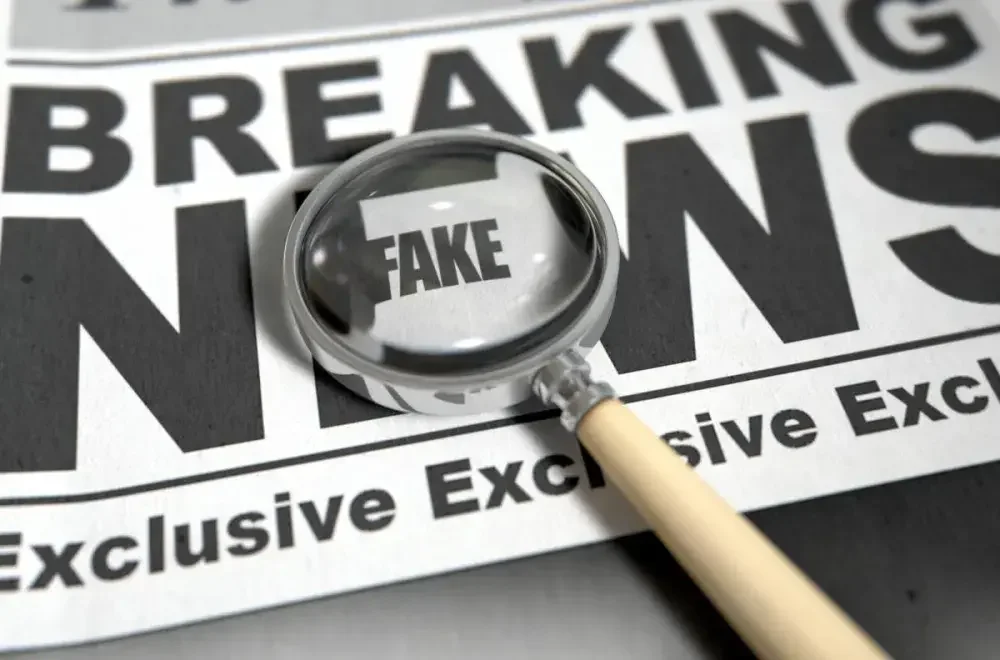
Just a few years ago, “fake news" was something you'd find in supermarket tabloids.
Now, though, the line between “fake news" and “real news" can seem awfully blurry. “Fake news" has been blamed for everything from swaying the U.S. presidential election to prompting a man to open fire at a Washington, D.C., pizza parlor.
What's fake and what's real?
A “real news" outlet, such as a major newspaper or television network, might make mistakes, but it doesn't distribute false information on purpose. Reporters and editors who report real news have a code of ethics that includes using reputable sources, checking facts, and getting comments from people on both sides of an issue.
Fake news outlets, on the other hand, are designed to deceive. They might have URLs that sound like legitimate news organizations, and they might even copy other news sites' design. They may invent “news" stories or republish stories from other internet sources without checking to see if they are true. Their purpose is usually to get “clicks" and generate ad revenue or to promote their owners' political viewpoint.
Some “fake news" is published on satire sites that are usually clearly labeled as satire. However, when people share articles without reading beyond the headline, a story that was supposed to be a parody can end up being taken as the truth.
Can't the legal system punish fake news?
The First Amendment protects Americans' rights to freely exchange ideas—even false or controversial ones. If the government passed laws outlawing fake news, that would be censorship that would also have a chilling effect on real news that people disagree with.
The main legal recourse against fake news is a defamation lawsuit. You can sue someone for defamation if they published a false fact about you and you suffered some sort of damage as a result—such as a lost job, a decline in revenue, or a tarnished reputation. If you are an ordinary, private person, you also must show that the news outlet was negligent (or careless).
But most fake news relates to public figures, who can only win a defamation lawsuit by showing that the news outlet acted with “actual malice." This means that the author must have known the story was false or must have had a “reckless disregard" for whether it was true or not. It's usually a difficult standard to meet, but defamation suits may become more common as concern about fake news grows.
For example, Chobani yogurt recently filed a defamation suit against conspiracy theorist Alex Jones and his site, Infowars, over a video and tweet headlined “Idaho Yogurt Maker Caught Importing Migrant Rapists." Jones' tweet led to a boycott of the popular yogurt brand.
Defamation liability isn't limited to the person who first published a fake story—it extends to anyone who republishes it on a website or blog. Melania Trump, for example, recently settled defamation lawsuits against a Maryland blogger, who published an article in August 2016, and the online Daily Mail that published a similar false article later that month.
How to spot fake news and stop it from spreading
Fake news can be hard to identify, with some fake news sites looking and sounding almost exactly like well-known media outlets. Here are some tips for figuring out what's fake and what's real:
- Read beyond the headline. The article may be labeled as a parody or it may just sound too outlandish to be true.
- Check the story out on Snopes.com, which has been researching rumors and false stories for two decades. For political news, try FactCheck.org.
- See if the story comes from one of these fake news websites identified by PolitiFact.com as part of a collaborative effort with Facebook.
- Fact check the story yourself. Do an online search to confirm the main facts in the story, click on any links provided, and read the sources. Also look for any reports identifying the site as a fake news site, and/or look up the author's bio online.
In the end, the law can't protect you from fake news. Get your news from sources that you know are reputable, do your research, and read beyond the headlines. And, if you find out an article is fake, don't share it. That's the surest way to stop a false story from spreading.

